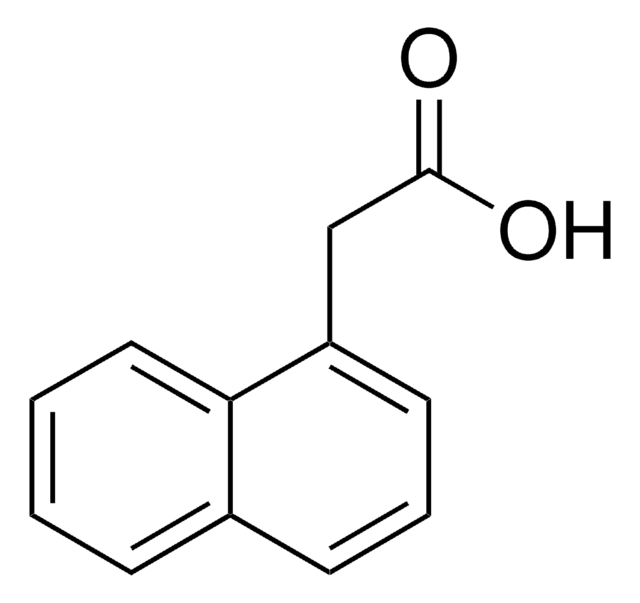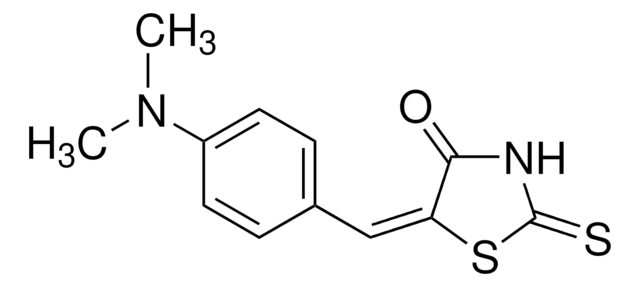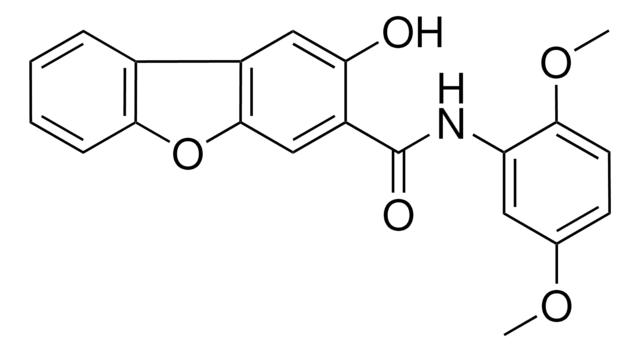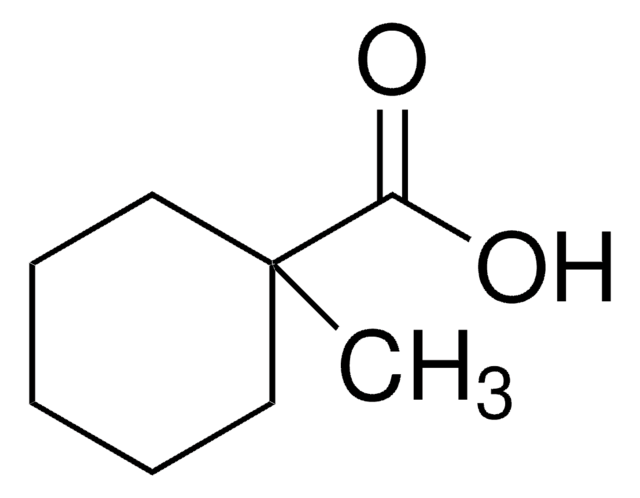70340
Naphthenic acid
technical
Synonim(y):
Acidol (petroleum by-product), Sunaptic B
Zaloguj sięWyświetlanie cen organizacyjnych i kontraktowych
About This Item
Polecane produkty
klasa czystości
technical
Formularz
liquid
liczba kwasowa
~215
gęstość
0.92 g/mL at 20 °C (lit.)
ciąg SMILES
OC(=O)CCC1CC(CC1)CC
InChI
1S/C10H18O2/c1-2-8-3-4-9(7-8)5-6-10(11)12/h8-9H,2-7H2,1H3,(H,11,12)
Klucz InChI
WVRFSLWCFASCIS-UHFFFAOYSA-N
Zastosowanie
Naphthenic acid is commonly used in the synthesis of useful metal naphthenates such as copper naphthenate, a wood preservative; titanium naphthenate, a precursor for the preparation of titanium oxide thin films and a rare earth naphthenate, a lubricant oil additive. It can also be in the synthesis of biodegradable naphthenic acid ionic liquids.
Komentarz do analizy
petroleum product, techn. mixture of alkylated cyclopentane carboxic acids
Ta strona może zawierać tekst przetłumaczony maszynowo.
Hasło ostrzegawcze
Warning
Zwroty wskazujące rodzaj zagrożenia
Zwroty wskazujące środki ostrożności
Klasyfikacja zagrożeń
Eye Irrit. 2 - Skin Irrit. 2 - Skin Sens. 1
Kod klasy składowania
10 - Combustible liquids
Klasa zagrożenia wodnego (WGK)
WGK 1
Temperatura zapłonu (°F)
213.8 °F - closed cup
Temperatura zapłonu (°C)
101 °C - closed cup
Środki ochrony indywidualnej
Eyeshields, Gloves, type ABEK (EN14387) respirator filter
Wybierz jedną z najnowszych wersji:
Masz już ten produkt?
Dokumenty związane z niedawno zakupionymi produktami zostały zamieszczone w Bibliotece dokumentów.
Klienci oglądali również te produkty
David Jones et al.
Journal of chromatography. A, 1247, 171-175 (2012-06-19)
The naphthenic acids of oil sands process-affected water (OSPW) are said to be important toxicants. The major acids are stated to have alicyclic structures and recently, numerous of these have been identified, but some evidence suggests 'aromatic' acids are also
Steven D Melvin et al.
Environmental pollution (Barking, Essex : 1987), 167, 178-183 (2012-05-12)
Naphthenic acids (NA) have been identified as harmful environmental contaminants that influence survival, growth and development of wildlife. Amphibian larvae are particularly susceptible to waterborne contaminants, but little information exists regarding exposure of amphibian embryos or tadpoles to NA. Our
Lan Liu et al.
Chemistry (Weinheim an der Bergstrasse, Germany), 18(38), 12059-12067 (2012-08-16)
The interactions between 3-O-methyl-mannose polysaccharides (MMPs), extracted from Mycobacterium smegmatis (consisting of a mixture of MMP-10, -11, -12 and -13) or obtained by chemical synthesis (MMP-5(s), -8(s), -11(s) and -14(s)), and linear saturated and unsaturated fatty acids (FAs), and a
Atefeh Afzal et al.
Environmental science & technology, 46(19), 10727-10734 (2012-09-01)
The large volume of oil sands process-affected water (OSPW) produced by the oil sands industry in Northern Alberta, Canada, is an environmental concern. The toxicity of OSPW has been attributed to a complex mixture of naturally occurring acids, including naphthenic
Effects of naphthenic acid exposure on development and liver metabolic processes in anuran tadpoles.
Steven D Melvin et al.
Environmental pollution (Barking, Essex : 1987), 177, 22-27 (2013-03-08)
Naphthenic acids (NA) are used in a variety of commercial and industrial applications, and are primary toxic components of oil sands wastewater. We investigated developmental and metabolic responses of tadpoles exposed to sub-lethal concentrations of a commercial NA blend throughout
Nasz zespół naukowców ma doświadczenie we wszystkich obszarach badań, w tym w naukach przyrodniczych, materiałoznawstwie, syntezie chemicznej, chromatografii, analityce i wielu innych dziedzinach.
Skontaktuj się z zespołem ds. pomocy technicznej










